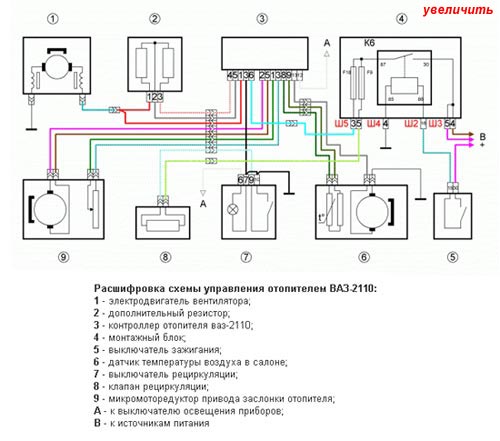
Symptoms of a Faulty or Faulty Heater Control Valve
Common symptoms include a heater not working, coolant leaking from under the engine, and no voltage at the heater control valve.
The heater control valve is a cooling and ventilation and air conditioning system component commonly found on many road cars and trucks. The heater control valve is usually installed near the fire wall and acts as a valve that allows coolant to flow from the engine to the heater core located inside the vehicle. When the valve is open, warm engine coolant flows through the valve into the heater core so that hot air can flow out of the vehicle's vents.
When the heater control valve fails, it can cause problems with the vehicle's cooling system and the operation of the heater. Usually, a faulty or malfunctioning heater control valve will cause several symptoms that may alert the driver to a potential problem.
1. The heater does not work
One of the first signs of a bad heater control valve is that the heater is not producing warm air. If the heater control valve breaks or sticks, the coolant supply to the heater core may be restricted or completely stopped. Without coolant supply to the heater core, the heater will not be able to produce warm air for the passenger compartment.
2. Coolant leak
Another common symptom of a problem with the heater control valve is a coolant leak. Over time, the heater control valve can wear and crack, causing coolant to leak from the valve. Heater control valves can also leak due to excessive corrosion when in contact with old or contaminated engine coolant. Usually a leaking control valve needs to be replaced to fix the leak.
3. Erratic heater behavior
Erratic engine behavior is another sign of a problem with the car's heater control valve. A faulty heater control valve may not be able to properly control the flow of coolant to the heater, which can lead to problems with heater operation. The heater can produce hot air, but only at certain times, such as at idle, and hot air can come and go. A faulty heater control valve can also cause the temperature gauge to behave erratically, rising and falling rapidly, making it difficult to read the engine temperature.
While replacing the heater control unit is usually considered a scheduled maintenance, as the vehicle approaches high mileage, it may develop issues that require attention. If your vehicle exhibits any of the above symptoms, or you suspect the problem is with the heater control valve, have a professional technician, such as AvtoTachki, have the vehicle inspected to determine if the valve should be replaced.